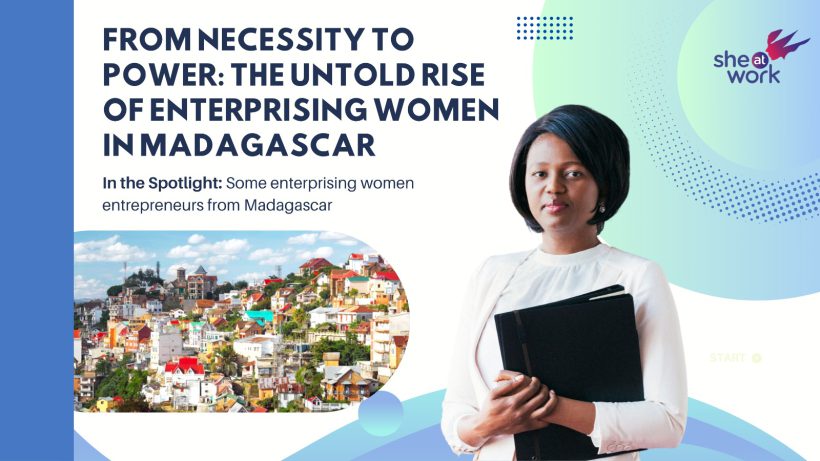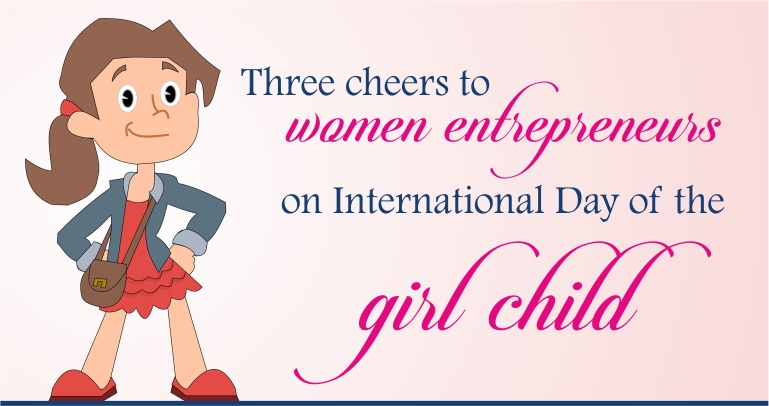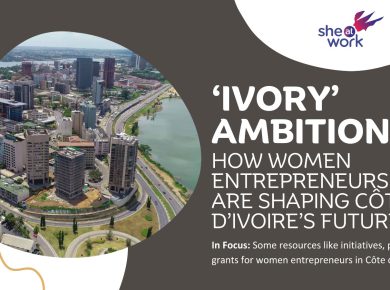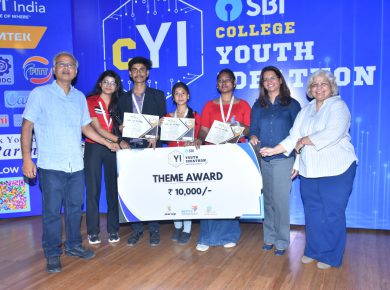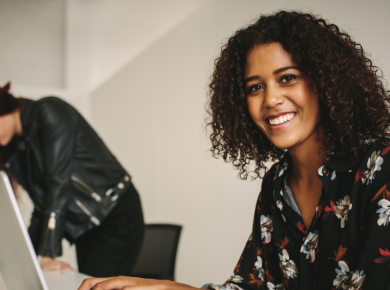In the Spotlight: Some enterprising women entrepreneurs
from Madagascar
MadagascarWomen #EntrepreneurshipMatters #ResilientWomen #EmpowerLocal
In the heart of the Indian Ocean, Madagascar known as “The Great Red Island”, is
home to a generation of enterprising women whose entrepreneurial spirit defies
economic constraints & social expectations. While global challenges like limited
access to finance and deeply ingrained gender norms persist, the entrepreneurial
journey of Malagasy women is uniquely shaped by necessity, resilience along with a
deep connection to their communities.
Small Resources, Big Impact: How Malagasy Women Are Driving Local
Change
For many women, especially in the island’s rural areas, entrepreneurship is not just a
choice – it is a lifeline. With formal job opportunities scarce, they launch small
businesses – to provide for their families, often with minimal resources. These
ventures frequently operate within the informal sector (from street vending to
agricultural trade), also forming the backbone of local economies. Their efforts are
marked not just by survival, but by ingenuity. Even amid disruptions like the COVID-
19 pandemic, these women have found ways to adapt – leveraging local knowledge,
crafting innovative products & tracking new ways to reach markets.
Support for these entrepreneurs is growing. Capacity-building programs, mentorship
initiatives, and international partnerships are beginning to provide tools and platforms
to help women thrive. Yet, systemic barriers – like restricted access to land, credit,
and business training – continue to limit their growth.
What sets Madagascar’s women entrepreneurs apart is their tenacity and deep-
rooted community focus. Their stories are not just about overcoming adversity – they
are about transforming it into ‘opportunity’.
Now, let us dive into the vibrant, often overlooked world of Madagascar’s
enterprising women – spotlighting the challenges they face and the remarkable
innovations they drive.
Matina Razafimahefa, Co-founder & CEO of SAYNA
Born in Côte d’Ivoire, daughter of a doctor father and an engineer mother in
polytechnic, she is the Co-founder and CEO of SAYNA – a start-up born from a
childhood dream and a project shared with her mother Nirina Rahoeliaribahy.
She is demonstrating how women can take a leading role in entrepreneurship in
Africa. Such female start-up leaders are breaking the glass ceiling by innovating in
digital training and cryptocurrency, and setting an example for the next generation.
In January 2018, thanks to €5,000 raised through a crowdfunding campaign, Matina
founded the platform Sayna – which means “intelligence” in Malagasy. For €9.90
euros per month, Sayna offers certified online training in digital professions.
The Sayna platform also offers paid “microtasks” to its students, which help them
improve their job prospects later on. Four years after its launch, the start-up became
a success. With support from donors such as The Seed Fund by Digital Africa, it
raised more than €100,000, and these funds have helped Sayna train students.
Her ambition is – to enable millions of Africans, regardless of their situation, to have
access to quality digital education and job opportunities around the globe, without
CV being a barrier! Another ambition is – to create profitable business that will
revolutionize the lives of millions of people & create jobs. Everyone cannot benefit
from a qualitative education in Madagascar, and she feels that it is this spirit of equity
and equality that SAYNA advocates through a digital training accessible to all.
As a young woman, she had to face many challenges and she felt it was necessary
to strive for development & to control growth. There have been both bitter failures
and great victories, but all of this has sculpted the personality she has become
today. Her challenges and every step taken have allowed her to progress, to grow
and to give the best of herself!!
SAYNA aims to revolutionize access to the job market via a crowdsourcing solution
and to make education in new technologies accessible to all – via the internet with
very attractive prices.
https://www.oxfordafricaforum.com/speakers2022/matina-razafimahefa
Nelly Chatue-Diop, Founder & CEO, Ejara
Backed by her love for mathematics & physics, it’s no surprise that Nelly Chatue-
Diop became interested in crypto-currencies, which she discovered while working in
several major firms in the new-technologies sector. But, as an employee, she got
bored very quickly and that led her in 2020 to launch Ejara – a name inspired by the
word ‘jara’ or “lion” in Bambara. When she launched the mobile investment and
savings platform based on blockchain technology, she was one of the very few
African women entrepreneurs in this field.
Ejara was created so that the general public, especially women, rural residents &
community groups, can access banking services with a very simple interface.
At Ejara, they are really ‘revolutionizing’ financial access across Africa. As a
pioneering fintech registered as a PSAN with the AMF (French regulator), they
empower individuals and businesses in the diaspora and the OHADA zone with
innovative solutions in crypto and tokenized assets. These unique solutions allow
their clients to invest, save and make cross-border payments in a simple, secure and
frictionless manner.
Their mission? To create financial inclusion, foster economic growth, and help
communities thrive with secure, decentralized & impactful technologies.
https://www.linkedin.com/in/nelly-chatue-
diop/?original_referer=https%3A%2F%2Fsearch%2Eyahoo%2Ecom%2F&originalSu
bdomain=cm
Camille André-Bataille, Co-Founder & CEO of ANKA
Madagascar
Camille André-Bataille, Co-Founder & CEO of ANKA Madagascar, is a person who
sees a way forward, and even jointly realized it with her Co-CEO, Nico Livache.
They are the first and only mini-grid builder in Madagascar and one of a very few in
the world, who is taking an approach that they may call Mini-grid 3.0, meaning they
are – based on local consultations – siting solar power generation and electricity
distribution, plus also providing support – and even space sometimes – for local
businesses.
Until now, essential services – including basic medical care and food processing-
and-preservation – could not be provided locally for lack of adequate electric power.
Essential activities have been costlier, less safe & worse for the environment
because they required transportation of material or people to-and-from a city.
https://mg.linkedin.com/in/camille-andr%C3%A9-bataille-4a0a7a60
Vololona Ravelonjatovo, Master Trainer with Farmer Business
School (FBS)
As Madagascar continues to face challenges in food security and agricultural
development, Vololona Ravelonjatovo, a Master Trainer with the Farmer Business
School (FBS), is not only reshaping the future of agribusiness in Madagascar, but
also paving the way for more women to take on leadership roles in the agricultural
sector.
With a decade of experience in rural training and as a former trainer with WWF, she
was no stranger to the challenges of agricultural development. Yet, the FBS
approach intrigued her, offering a unique opportunity to change how farmers manage
their farms. Through FBS, she trained many farmers across Madagascar,
empowering them with the tools and knowledge to improve their farming practices.
Her journey as a trainer hasn’t been without its challenges. Early in her career, she
encountered significant resistance – especially from male participants in rural areas
where gender and ethnic stereotypes are prevalent. One particularly challenging
experience took place in the Anosy Region, located in the far South of Madagascar,
where women are often considered ‘inferior’. When she arrived for the training, the
participants were initially skeptical of her ability to lead, not only because she was a
woman but also because of her ethnic background!!
Despite the challenges, she was able to overcome the resistance, proving that her
knowledge and approach could transcend cultural boundaries. In fact, the
experience was a turning point, reinforcing her belief in the power of education to
overcome prejudice.
https://www.agribusiness-facility.org/news-detail/breaking-barriers-empowering-rural-
women-agriprenuers-in-madagascar.html
Iry Raissa Alaoy, Consultant, ANKA
Iry Raïssa Alaoy is a Malagasy business development consultant at ANKA who is
dedicated to long-term consultations with people in Marosely and other villages.
Similarly, Aurélie Buffo of Experts Solidaires (an NGO that cooperates with ANKA to
expand electrification) moved to the region – sometimes living in Marosely for many
days-at-a-time – to build relationships.
She is also accountable for local consultations that are a part of ANKA’s Agri-Grid
initiative, a part of its Mini-grid 3.0 approach which specifically will encourage
villagers to make the most of local plants that already grow in their yards that go
under-utilized, or other resources.
Although they produce staple crops such as cassava, maize & sugarcane which
could be processed into other commodities such as flour, nutritious products or
sugar, Madagascar is a net importer of these kinds of products. And, there is more to
come….
https://mg.linkedin.com/in/iry-ra%C3%AFssa-alaoy
Suzanne Jaouen of Moringa Wave
This is one of Malagasy businesses that reveal that it is possible to profitably
process under-utilized local plants into higher-value products, for both domestic
consumption and export. According to Suzanne Jaouen of Moringa Wav, the
Moringa plant is seen as nearly useless locally around village residences, but is
prized as a trendy powdered dietary supplement in Europe!! Her company hopes to
scale-up to both sell more of their product abroad and to educate and distribute more
locally to help combat malnutrition.
Moringa Wave has a partnership with the National Office of Nutrition (ONN) which
manages programs around nutrition. Their project is indeed engaged in a series
of educational activities targeting Malagasy consumers and producers. They
distribute meals in schools, to fight against malnutrition. Consequently, these top-
quality plants are a great source of fiber, calcium, antioxidants, iron, protein,
nutrients, magnesium as well as vitamins and minerals.
Moringa Wave is part of the SUN Business Network, an essential part of the Scaling
up Nutrition (SUN) movement. This initiative aims to mobilize businesses at the
national and global level to invest responsibly in improving nutrition. The company is
also a member of the United Nations Global Compact, particularly involved
in Sustainable Development Goals (SDGs).
https://fr.linkedin.com/in/suzanne-jaouen-9159498b
https://www.moringawave.com/en/moringa/
https://extremeentrepeurship.com/2019/11/01/solarwomenmadagascar/
